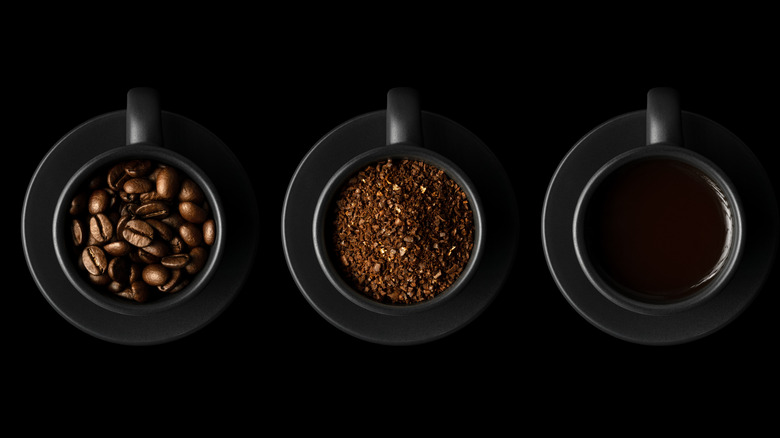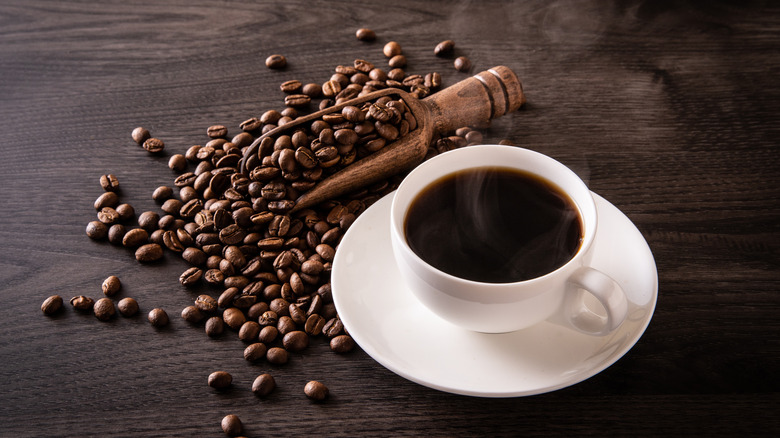The Unexpected Truth About Dark Roast Coffee
You either love coffee or you hate coffee. Okay, or you drink it to get through the day because nothing else beats its caffeine content. In any case, it's perfectly acceptable to drink coffee every day in contemporary society, but everyone has their own personal taste for it. Cream? Sugar? Flavoring agents? How about whether you want a coffee or a latte?
The coffee world gets very complex and confusing — which is why people fall for many coffee myths — but as long as you hone in on your own taste and preferences, nothing else matters. All you need to know is a few basics before you get started, including the truth about different roasts of coffee beans.
According to Coffee Affection, coffee beans are typically roasted on a scale of light-dark with four gradients: light roast, medium roast, medium-dark roast, and dark roast. Most people naturally gravitate toward medium roasts, though experienced coffee drinkers who appreciate the bean's deeper notes may prefer a darker roast.
Coffee snobs are quick to diss on light roast coffee because they consider it weak in flavor (and therefore bad). However, dark roasts have a surprising factor to them that many don't realize.
Dark roast coffee has considerably less caffeine than lighter roasts
Coffee purists often opt for darker coffee roasts because they enjoy the full taste of the coffee and its intricacies. However, if one is drinking coffee solely for a kick of caffeine, they might want to try a lighter roast because dark roast coffee's caffeine content may not match its stronger flavor.
According to Healthline, dark roast coffee typically has less caffeine than lighter roast varieties. This is thanks to the roasting process itself. Some of the coffee beans' caffeine is literally burned away while they are being roasted — just as vegetables lose nutrients the longer they're roasted. Healthline notes that dark roast coffees are commonly roasted at around 400 degrees Fahrenheit for approximately 15 minutes. Meanwhile, lighter roasts are only roasted for about 10 minutes at a lower temperature of 350 Fahrenheit.
The roasting process is what gives the final beverage its flavor; coffee beans don't naturally taste like the end drink. This affects the caffeine levels as well. According to Taste of Home, lighter roasts when weighed by volume can have up to 60% more caffeine than their darker counterparts. Therefore, all you have to quip the next time someone says something snarky to you about drinking light roast coffee is that they're drinking the actual "weaker" drink.
Cheers!

